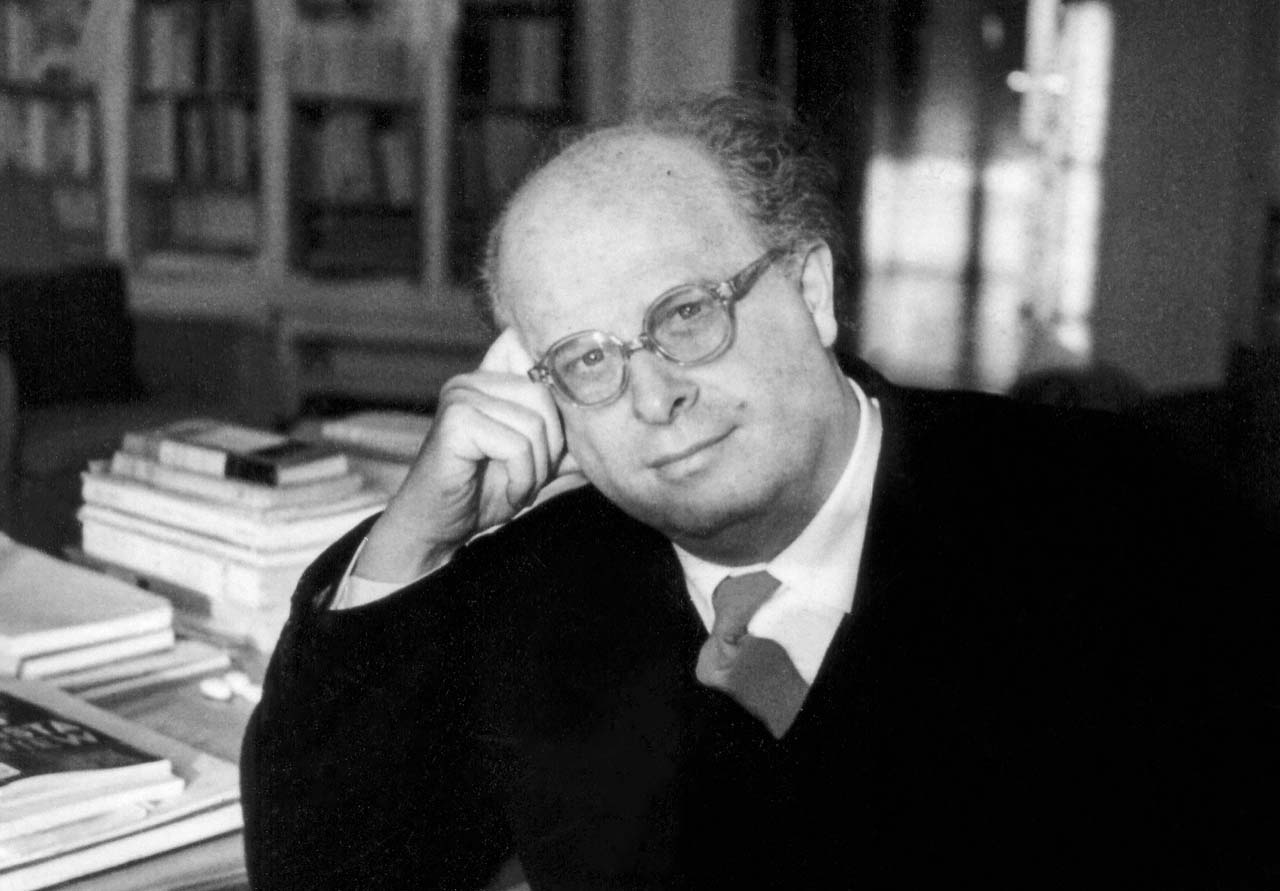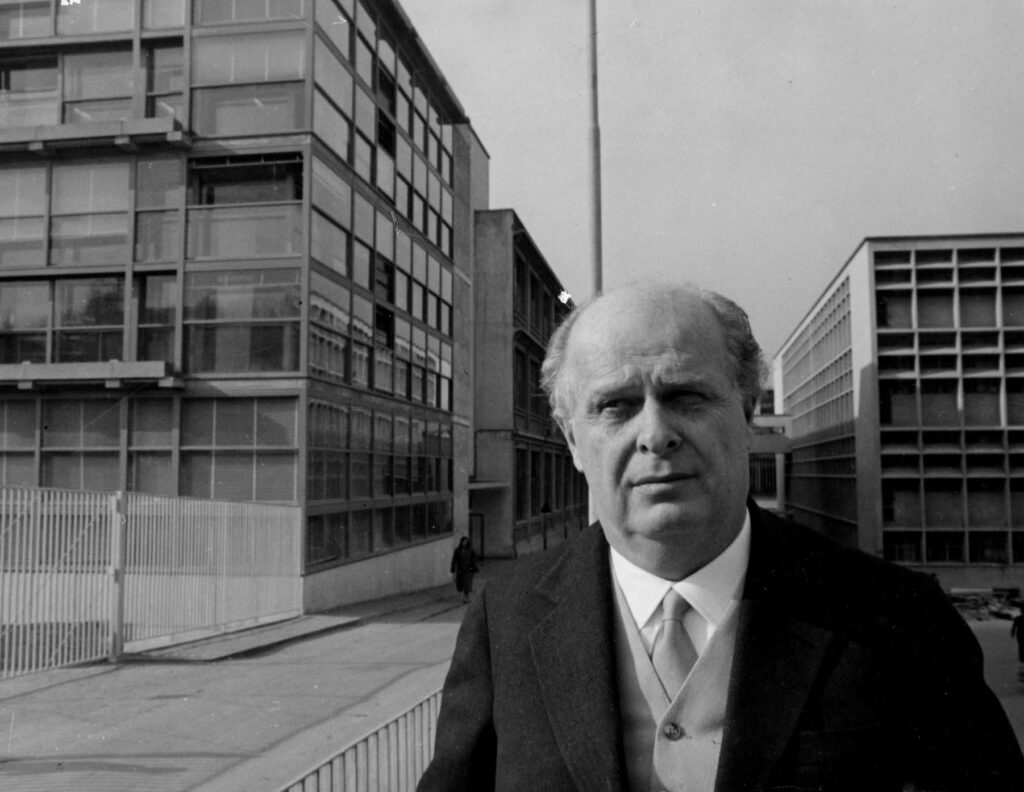
Entrepreneur, industrialist, publisher, intellectual, politician, social innovator and pioneer of urban planning, Adriano Olivetti (born in Ivrea in 1901 – died in Aigle in 1960) is one of the most singular and extraordinary figures of the 20th century. His community-based social reform project, which centred on the interplay between physical progress, technical efficiency and the ethics of responsibility, is today recognised as one of the most up-to-date and advanced models of sustainability.
Between 1932 and 1960 he steered the typewriter and office products company founded by his father in 1908 to international success, making its name a global synonym for excellence and innovation. From the end of the Second World War onwards, Adriano Olivetti created a complex system of social interventions, cultural initiatives and political campaigns, brought together in a single project called “‘Comunità”, whose symbol is a bell. Underlying all this was the idea of a new constitutional order, a system of communities within a socialist federal state, which Olivetti described in the manifesto he wrote during his exile in Switzerland between 1944 and 1945, entitled “The Political Order of Communities” (L’ordine politico delle Comunità).
His sudden death in February 1960 interrupted a life dedicated to the future, to the idea of a technologically advanced, supportive, participatory and equitable society.
His legacy is vast and complex; two years after his death his family and closest collaborators decided to establish the Adriano Olivetti Foundation with the aim of safeguarding his life and work through a clear mission to transform his civil, cultural and social efforts into fresh design ideas.
In 2018, Olivetti’s entire industrial architecture in Ivrea was recognised by UNESCO as a World Heritage Site, affirming the universal value of Olivetti’s work as embodied in the concept of the “physically more fascinating and spiritually higher” community that Adriano Olivetti tirelessly pursued throughout his life.
Discover more about Adriano Olivetti
Discover more about Edizioni di Comunità
